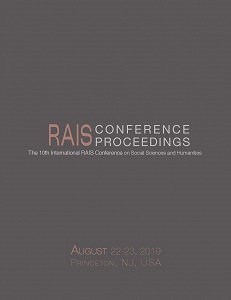Metaphors of Crime and Punishment in Shakespeare’s “Macbeth”
Metaphors of Crime and Punishment in Shakespeare’s “Macbeth”
Author(s): Marina A. Pershina
Subject(s): Social Sciences
Published by: Scientia Moralitas Research Institute
Keywords: crime; Lady Macbeth;
Summary/Abstract: The aim of the article is to study the notions of crime and punishment in the Shakespeare’s tragedy “Macbeth”. It analyses the role of supernatural elements and metaphorical symbols as key components of the images of Macbeth and Lady Macbeth. Complex metaphors and poetic symbols go through the play’s plot. They follow the development of the characters’ inner struggle, reveal their intentions, and finally reflect their fall. Most symbols represent the supernatural dichotomy of the heaven (king Duncan’s virtues are compared to angels) and the hell (Macbeth is called a devil). Even the scenes of nature are depicted fantastically. The words of Hecate and the ‘weird sisters’ express the idea of existence in the external human world of something unknown that affects people’s internal motivation. At the end of the tragedy, metaphors in Macbeth’s soliloquies embody the themes of death, destruction, moral disintegration of the personality of the person who lost the meaning of life. The results of the research show that metaphors and symbolic elements are implied in the tragedy to create a psychological portrait of main characters. On the one hand, Shakespeare used them to show individuals. On the other hand, these characters become the collective images of sinners and righteous men.
Book: Proceedings of the 10th International RAIS Conference on Social Sciences and Humanities
- Page Range: 202-207
- Page Count: 5
- Publication Year: 2018
- Language: English
- Content File-PDF

